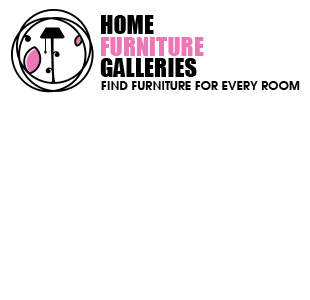Introduction to Pharmacy Technician Certification
Becoming a certified pharmacy technician requires thorough preparation and understanding of various pharmaceutical concepts. This study guide provides an overview of key topics, exam preparation tips, and resources to help you succeed in your pharmacy technician certification exam. For more detailed information, you can visit pafibungkutengah.org.
Understanding the Role of a Pharmacy Technician
1. Job Responsibilities
- Medication Dispensing: Assist pharmacists in preparing and dispensing medications.
- Customer Service: Provide information to patients and healthcare professionals.
- Inventory Management: Maintain medication stock and manage inventory.
- Administrative Tasks: Handle prescription orders, insurance claims, and billing.
2. Required Skills
- Attention to Detail: Ensure accuracy in medication dispensing and record-keeping.
- Communication Skills: Interact effectively with patients, pharmacists, and other healthcare providers.
- Technical Proficiency: Operate pharmacy software and equipment.
Key Topics for Study
1. Pharmacology
- Drug Classifications: Understand different classes of drugs and their therapeutic uses.
- Mechanisms of Action: Learn how various medications work in the body.
- Side Effects and Interactions: Identify common side effects and potential drug interactions.
2. Pharmacy Law and Ethics
- Regulatory Agencies: Familiarize yourself with the FDA, DEA, and state boards of pharmacy.
- Controlled Substances: Understand schedules of controlled substances and proper handling procedures.
- Ethical Standards: Learn about patient confidentiality (HIPAA) and ethical practices in pharmacy.
3. Prescription Processing
- Prescription Components: Know the parts of a prescription, including sig codes (directions for use).
- Calculations: Practice dosage calculations, conversions, and compounding measurements.
- Labeling Requirements: Understand labeling guidelines for medications.
4. Medication Safety
- Error Prevention: Learn strategies to minimize medication errors.
- Adverse Event Reporting: Know the process for reporting adverse drug reactions.
- Patient Counseling: Techniques for educating patients on medication use and safety.
5. Inventory Management
- Ordering and Stocking: Procedures for ordering medications and maintaining inventory.
- Storage Requirements: Proper storage conditions for different types of medications.
- Expiration Management: Track and manage medication expiration dates.
6. Pharmacy Operations
- Pharmacy Software: Familiarity with common pharmacy management systems.
- Insurance Processing: Understand the basics of insurance claims and third-party billing.
- Regulatory Compliance: Adhere to pharmacy laws and regulations.
Exam Preparation Tips
1. Create a Study Schedule
- Consistent Study: Dedicate regular time slots for studying each topic.
- Break Down Material: Divide study material into manageable sections.
2. Use Study Resources
- Textbooks and Guides: Utilize pharmacy technician textbooks and certification study guides.
- Online Courses: Enroll in online courses or review sessions specifically designed for certification exams.
- Practice Exams: Take practice tests to familiarize yourself with the exam format and identify areas needing improvement.
3. Hands-On Practice
- Work Experience: Gain practical experience through internships or working in a pharmacy setting.
- Simulations: Participate in lab simulations to practice skills like prescription processing and medication dispensing.
4. Join Study Groups
- Peer Learning: Collaborate with fellow students to review material and discuss challenging concepts.
- Group Quizzes: Test each other’s knowledge through group quizzes and flashcards.
5. Stay Updated
- Current Practices: Keep abreast of new drugs, regulations, and best practices in pharmacy.
- Professional Organizations: Join professional organizations such as the American Association of Pharmacy Technicians (AAPT) for resources and networking.
Additional Resources
1. Textbooks
- “The Pharmacy Technician” by Mike Johnston
- “Pharmacy Technician Certification Exam Review” by Patricia K. Anthony
2. Online Resources
- Pharmacy Technician Certification Board (PTCB): Official site for certification information and resources.
- National Healthcareer Association (NHA): Offers study materials and practice tests.
3. Mobile Apps
- Quizlet: Create and study flashcards on various pharmacy topics.
- PTCB Exam Prep: Apps specifically designed for pharmacy technician exam preparation.
Conclusion
Preparing for the pharmacy technician certification exam requires a combination of theoretical knowledge, practical skills, and strategic study planning. By focusing on key topics such as pharmacology, pharmacy law, medication safety, and prescription processing, and utilizing various study resources and tips, you can enhance your readiness and confidence. With dedication and thorough preparation, you can achieve certification and excel in your career as a pharmacy technician.

